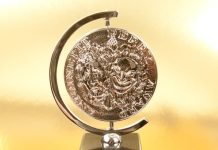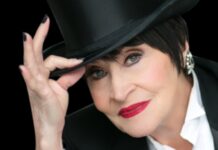Impresario Scott Siegel and his stellar casts of today are bringing the history of musical theater to life in his latest concert series Broadway by the Season, a follow-up to his popular Broadway by the Year programs that played for more than two decades. The August installment, presented at the Kaufman Music Center’s Merkin Concert Hall to a packed house of devoted fans and up-and-coming musical theater students on Monday, August 7, featured shows, stories, and songs from the 1940-41 and 1951-52 seasons, in two acts, with the performers masterfully accompanied by Siegel’s long-time musical director and pianist Ross Patterson and his Little Big Band (Tom Hubbard on bass and Eric Halvorson on drums). Six of the nineteen numbers also included lively segments of dance, choreographed by series’ regular Danny Gardner and spotlighting the talents of the Broadway by the Season Dance Troupe and the triple-threat stars.
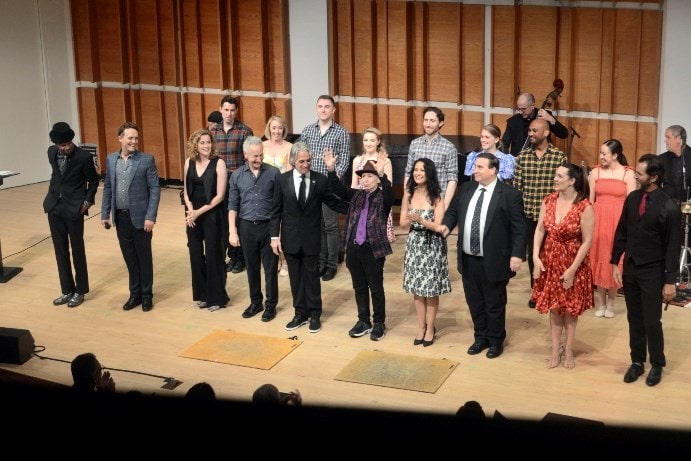
This month’s roster of luminaries – Tony Danza (Honeymoon in Vegas; Taxi), Bill Daugherty (of the musical comedy duo Daugherty & Field), Ali Ewoldt (The Phantom of the Opera), Jason Graae (Falsettos), Kendrick Jones (Shuffle Along), Douglas Ladnier (Jekyll & Hyde), Julia Murney (Wicked), Christiane Noll (Dear Evan Hansen), and Gardner himself (Dames at Sea) – along with the BBTS Dance Troupe of eight (Ashley Bice, Emily Applebaum, Kelty Ober, Kelly Sheehan, Danny McHugh, Bryan Hunt, Darrell Joe, and Chris McNiff), were perfectly paired by Siegel with the songs that best suited their voices, specialties, and stage personalities and brought their A-game (and apropos clothing that fit the moods and stylings) to the set list of iconic hits and lesser-known numbers from the two 20th-century seasons of Broadway musicals.
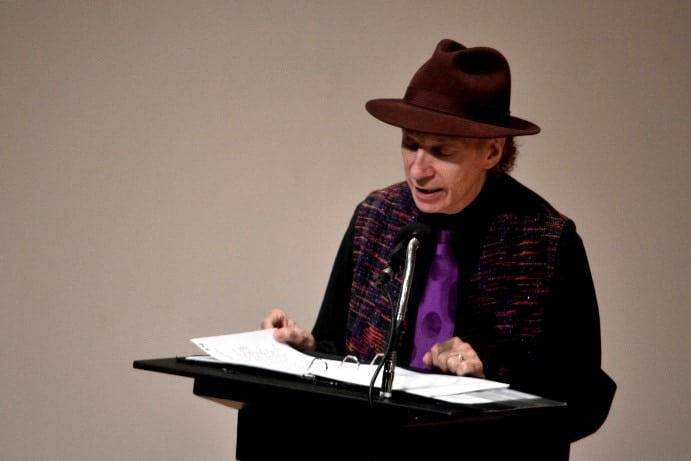
In his signature format, Siegel, a wealth of knowledge and author of 48 books, introduced each of the artists and songs from a lectern at the side of the stage, with the highlights of their illustrious careers, historical facts to contextualize the musical selections, and witty anecdotes about the shows they’re from and the casts and creative teams who presented them. Gardner opened and closed the show with high-energy, upbeat, and funny song-and-dance numbers that let his sense of humor take center stage, joined by the full BBTS Dance Troupe on the vigorous “There’s a Great Day Coming, Mañana” from the 1940 musical Hold on To Your Hats (music by Burton Lane and lyrics by E. Y. Harburg), which left them all flat on the floor, faux-collapsed from exhaustion, and by the spectacular Jones on “Chiri-Bim, Chiri-Bom” from the 1951 Yiddish revue Bagels and Yox (lyrics and music by Sholom Secunda and Hy Jacobson), in a mock star competition that had them tapping, jumping, clicking their heels, and flying through the air.
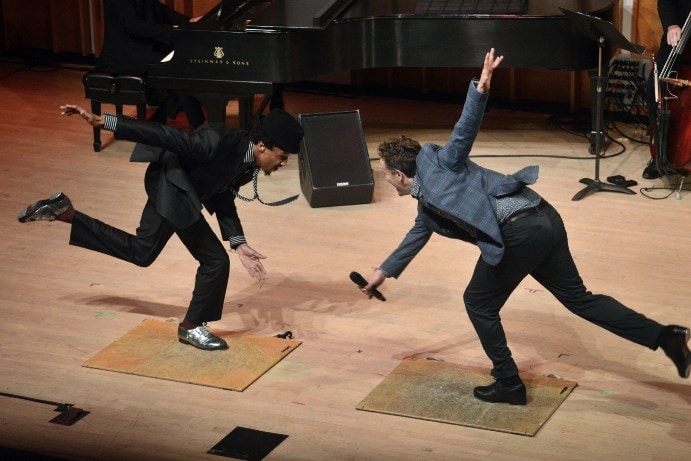
Other dance segments featured Gardner’s versatile steps and styles (and love of his genre) in his solo song “My Home Is in My Shoes” from the 1951 musical comedy Top Banana; the Dance Troupe accompanying him on “I’m on My Way” from Lerner and Loewe’s score for Paint Your Wagon of the same year; Jones dancing along to the words and message of Murney’s vocal on the Great American Songbook standard “Taking a Chance on Love” composed by Vernon Duke, with lyrics by John La Touche and Ted Fetter, for Cabin in the Sky (1940); and stage and screen favorite Tony Danza singing and tapping to one of Rodgers & Hart’s classic entries in the Great American Songbook, the 1941 love song “I Could Write a Book” from Pal Joey, preceded by his vocal on another Rodgers & Hart show tune, “It Never Entered My Mind,” from the 1940 musical Higher and Higher, both of which he delivered with his natural ease and command, while evoking the suave style of the era, in a top-notch performance that prompted Siegel to note, “AND he’s a nice guy.”
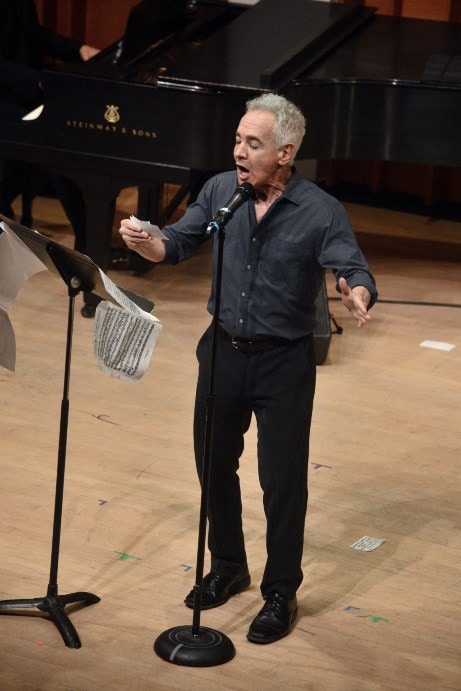
Graae (who, Siegel reminded us, provided the voice of Lucky the Leprechaun on commercials for Lucky Charms cereal) brought his comedic chops to the hilarious patter song “Tschaikowsky (and Other Russians)” as written (and spelled) by Ira Gershwin (lyrics) and Kurt Weill (music), from the 1941 musical Lady in the Dark, making a facetiously grand entrance, playing the clarinet (intentionally badly at first and making a mess of the sheet music), delivering the rapid-fire tongue-twisting list of the names of 50 Russian composers at high speed, while throwing the index cards he referred to all over the stage, and returning with a broom to sweep them up. And Murney (who enacted, with expressive gestures, what Siegel called the “overt sexuality” of Pal Joey’s “Bewitched Bothered and Bewildered”) brought laughs to the fast-paced break-up song “If You Hadn’t, But You Did,” with lyrics by Betty Comden and Adolph Green and music by Jule Styne, from the 1951 musical comedy revue Two for the Aisle. She, too, laughingly used index cards that she threw on the floor, leaving Graae to return to the stage with his broom to clean up, Siegel to joke that there must have been a sale on index cards, and the audience in stitches.
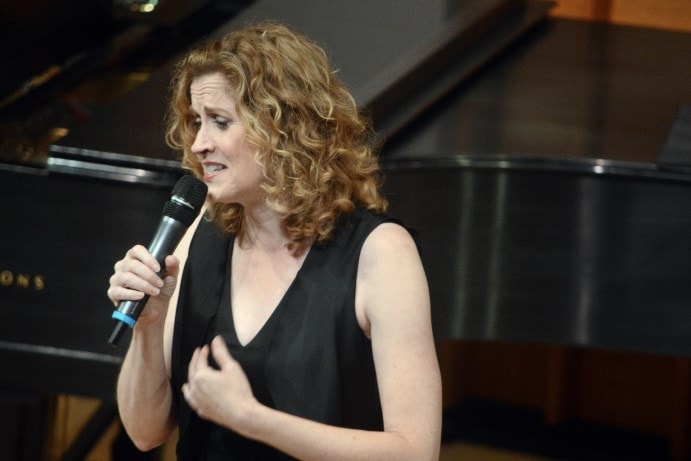
Along with the fun-filled dancing and comedy numbers were the more serious ballads, imbued with powerful emotion in moving vocals by the extraordinary cast. Two songs by Sammy Fain (music) and E.Y. Harburg (lyrics) from the 1951 allegorical musical tale about the laughing doll Flahooley – “Here’s to Your Illusions” and “He’s Only Wonderful” – were delivered respectively by the exquisite voices of Noll (returning later with the heartrending jazz song “Guess Who I Saw Today,” composed by Murray Grand, with lyrics by Elisse Boyd, for New Faces of 1952, with standout accompaniment by the Patterson trio) and Ewoldt (who also did a beautiful unplugged rendition, with soaring high notes, of “My Ship” from Lady in the Dark).
Ladnier brought his rich and resonant baritone and profound sentiment to three songs: “It’s a Lovely Day Tomorrow,” written by Irving Berlin to convey the intense feelings of wartime in 1938, then used in his musical Louisiana Purchase in 1940; and “Wand’rin Star” and the blockbuster “They Call the Wind Maria” from Paint Your Wagon, set in the time of the California Gold Rush, and here achieving the gold standard of performance.
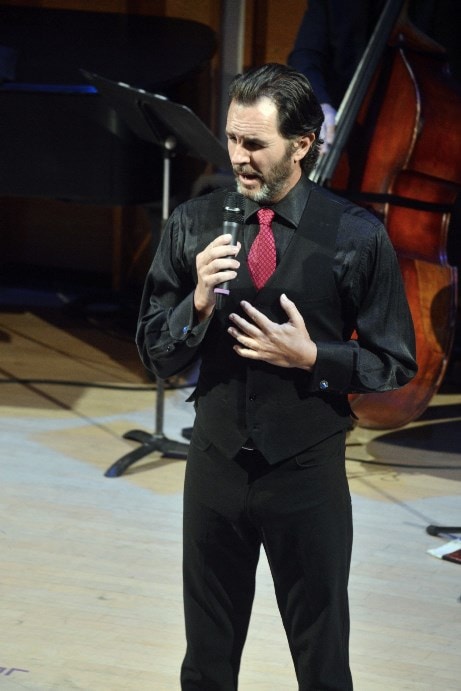
Rounding out the superb cast was Daugherty, who consummately captured the smooth sound and genuine charm of the mid-century jazz standards “How High the Moon” by lyricist Nancy Hamilton and composer Morgan Lewis for the 1940 musical Two for the Show (which was preceded, Siegel observed, by One for the Money and followed by Three to Make Ready) and “Love Is a Simple Thing” from New Faces of 1952, with lyrics by June Carroll and music by Arthur Siegel (who was a friend of Daugherty’s and no relation to Scott), with seemingly effortless sophistication and skill.
If you missed this month’s highly entertaining and informative installment of Broadway by the Season, mark your calendar for the next two trips down memory lane at Merkin Hall, with the September 11 show going back to the years 1964-65 and 1972-73, and the October 30-31 program revisiting the Broadway musicals of 1988-89 and 2013-14.
Running Time: Approximately two hours and five minutes, including an intermission.
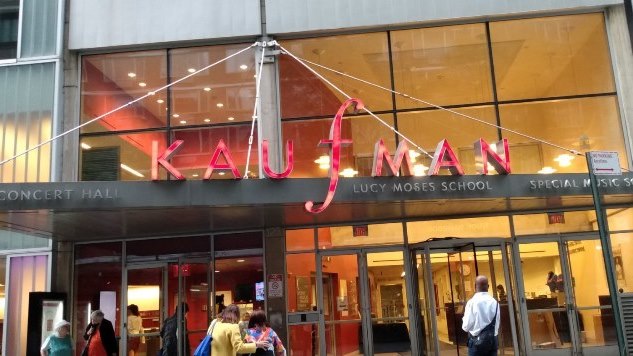
Broadway by the Season: 1940/41 & 1951/52 played Monday, August 7, 2023, at 8 pm, at Merkin Concert Hall, Kaufman Music Center, 129 West 67th Street, NYC. For information and tickets (priced a $60-$75, plus fees) to upcoming installments, go online. Masks are not required but are strongly encouraged.



